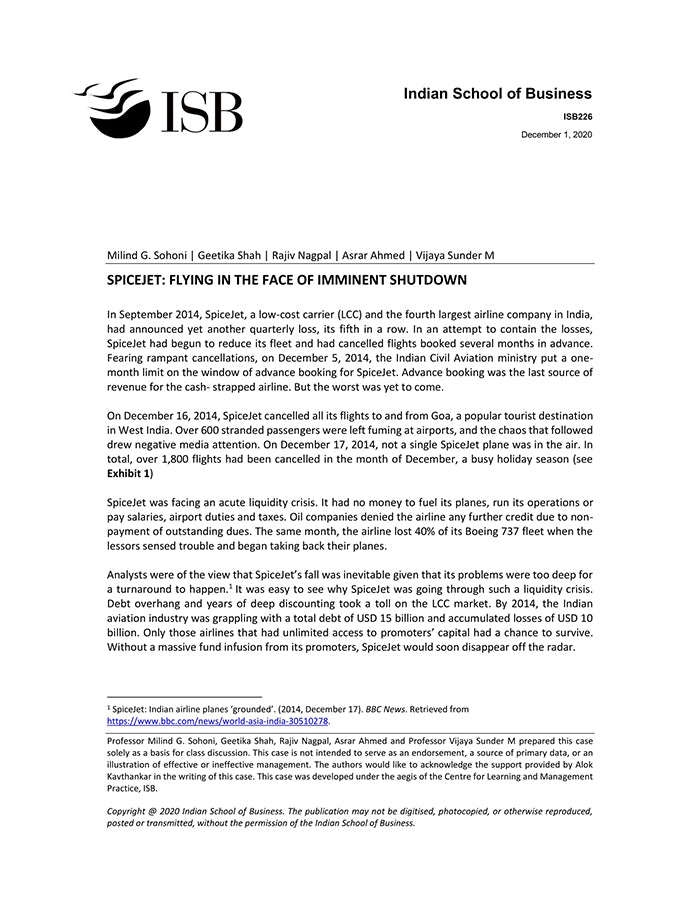SpiceJet: Flying in the Face of Imminent Shutdown
受取状況を読み込めませんでした
This case describes the plight of SpiceJet, an Indian low-cost airline that found itself in an acute liquidity crisis and on the brink of closure in December 2014. By the month's end, SpiceJet had no money to fuel its planes, run its operations or pay salaries, airport duties and taxes. Oil companies had refused to extend further credit to the airline until it settled its past dues. By late 2014, the operational footprint of SpiceJet, which had ballooned to 59 destinations, deflated when the airline had to reduce its fleet to 32 planes from 58 planes within a short span of six months. The lessors demanded that the planes be returned to them to reduce their risk exposure in SpiceJet. In January 2015, Ajay Singh, former chairman and founder of SpiceJet, came back on board five years after he sold the airline to media baron Kalanithi Maran of Sun Group. Singh was asked to bring the troubled airline back on track, a task that was fraught with challenges. Apart from managing the liquidity crisis, Singh had to find a way for SpiceJet to retain its key routes with a smaller fleet and recover ground where SpiceJet had been forced to recede. It was also crucial to raise employee morale and win back customer confidence and trust in the brand. The case unfolds the structural challenges of the Indian airline industry, which is characterized by steep discounting and overcapacity that eventually results in the underutilization of assets. Only an airline with limitless access to capital or very high operational efficiencies is likely to survive in this sector.
【書誌情報】
ページ数:13ページ
サイズ:A4
商品番号:HBSP-ISB226
発行日:2020/11/30
登録日:2021/4/14


